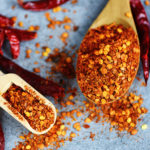By David Blyweiss, M.D., Advanced Natural Wellness
December 30, 2019
You had a fun night with friends and drank a few glasses of wine. It’s an early day tomorrow. So — without thinking — you pop a few Tylenol and head off to bed.
When you wake up, you’re in a hospital hooked up to IVs with life-threatening liver damage due to a drug overdose.
Liver damage… due to Tylenol? Absolutely.
If this story sounds like something you would do, then pay close attention. Because you can do serious damage to your liver with some very innocent over-the-counter medications.
You probably think if you don’t drink much alcohol and don’t have a hepatitis virus, your liver is safe. But that’s a pretty risky assumption.
Today there are all sorts of things that can affect your liver function.
For example, you may already know obesity and diabetes places you at a very high risk of liver problems. And high fructose corn syrup tops the list as the main culprit. It has strong ties to both diabetes and obesity… and liver disease.
MD Exposes the Hidden Danger to Your Eyes

When your eyesight starts to fail, it's a real problem. Suddenly you can't go to the grocery store... you can't get to the doctor if you have an emergency... you can't meet your friends for dinner…
Your "regular" doctor doesn't have time to keep up with the latest research. And the same goes for eye doctors. They go to school to learn how to fit you for glasses and contacts, but have no way of preventing the damage and loss of eyesight that threatens your freedom and independence.
Let me show you something that explains a LOT about how your eyes work.
In my FREE Special Report, I'll show you a HUGE, untapped resource for your eyes that safely and naturally restores clear, effortless eyesight.
Click here to get started...
But there’s another source of liver disease that doesn’t get nearly enough attention. You may have never even heard about it before.
It’s called “drug-induced hepatitis”.
This isn’t a viral form of hepatitis, but it’s very similar. It’s something that can happen when you use certain pharmaceutical drugs. Some of them are sold over-the-counter. Others require a prescription.
Tylenol, or acetaminophen, is a perfect example:
#1 Cause of Liver Failure in the U.S.
Acetaminophen is a known pain reliever. And I find that some of my patients reach for it several times a day to relieve minor aches and pains. After all, it’s sold everywhere. How harmful can it be?
Well, it’s a lot more dangerous than you would think.
You see, acetaminophen is responsible for almost 79,000 ER visits each year. It also tops the list as the leading cause of liver failure in the U.S.
Acetaminophen isn’t the only “safe” drug that can destroy your liver function. Certain NSAIDS, statins and antibiotics also come with their share of risk to the health of your liver.
Drugs like these account for more than half of the acute cases of liver failure that occur here in the U.S. each year.
Now, drug-induced hepatitis shouldn’t be taken lightly. In fact, it can generate even more damage to your liver than viral hepatitis.
The World's Quickest Solution for Ending Prostate and Urinary Misery
This has recently been revealed to be one of the only real breakthroughs in prostate health.
The seeds of a strange fruit (sometimes called "Chinese Apples") hold powerful phytonutrients that are a revolution in prostate health.
In fact, UCLA and Veterans Administration research have now proved this to be true.
Not only that, but it may be the worlds quickest solution for ending prostate misery.
Simply stated, these phytonutrients represent a huge step beyond beta sitosterol, saw palmetto, and other phytosterols alone.
Simply click HERE if you want to have fast prostate relief...restful, uninterrupted sleep...no more constant "urges to go"...enhanced virility...and optimal prostate support for life.
That’s because it damages a part of the liver called the “parenchyma.” This is the part of the liver that filters blood and removes toxins.
When it’s not working right, your body can’t get rid of these toxins. They just keep building up in your system. A malfunctioning liver also messes with your nutrient uptake and hormonal balance.
However, a sick liver is hard to recognize.
That’s because it’s not easy to diagnose. Initial symptoms – such as nausea, fatigue and loss of appetite – are non-specific. They could be signs of just about anything.
But if you ever experience acute liver failure, you’ll recognize it in a heartbeat. Abdominal swelling, jaundice, nausea and confusion can strike with a matter of days. If this occurs, you could experience some serious complications. It could even put you on the transplant list.
Start Protecting Your Liver Today
Unfortunately, there are a lot of medications that have a liver warning on the label. And if you take any of them, I heartily suggest you have your liver enzymes checked regularly. Better yet, talk to your doctor about other alternatives – including ones that are natural.
Some of the hardest-hitters include everyday pain relievers such as acetaminophen, ibuprofen, diclofenac and naproxen. A lot of antibiotics are on the list too, like tetracycline, erythromycin and amoxicillin-clavulanate. Sulfonamides, statins and chlorpromazine are also hard on your liver.
In the meantime, your liver is an amazing organ. It’s one of the few that can regenerate and repair partial injuries. So if you catch the problem early enough and stop taking the drug that’s causing the damage, you have a great chance of recovering full liver function.
To help ensure your liver health, there are also a few nutrients that pack a lot of protective power. Here’s what I recommend to my patients:
N-acetylcysteine (NAC) is the first line of defense for people who go to the emergency room with acetaminophen toxicity. When it’s administered within ten hours of acetaminophen poisoning, the chances of recovery are phenomenal. You can be proactive by taking 600 mg. twice daily.
Milk thistle contains flavonoids that support liver function. Take 420–600 mg. of silymarin per day from an herbal extract of milk thistle standardized to 80 percent silymarin content.
Phosphatidylcholine helps to prevent fat from being deposited in the liver. It can also help break down scar tissue and bolster the function of liver cells. Take 900 mg. a day of this nutritional supplement to improve liver function.
You can’t survive without your liver, keep it happy and it will keep you healthy for years to come.
SOURCES:
Goran MI, et al. “High fructose corn syrup and diabetes prevalence: A global perspective.” Glob Public Health. 2012 Nov 27. [Epub ahead of print]
Ouyang X, et al. “Fructose consumption as a risk factor for non-alcoholic fatty liver disease.” J Hepatol. 2008 Jun;48(6):993-9.
Budnitz DS, et al. Emergency department visits for overdoses of acetaminophen-containing products. Am J Prev Med. 2011 Jun;40(6):585-92.
Drug-Induced Hepatotoxicity: A Review. Aashish Pandit, Tarun Sachdeva and Pallavi Bafna. Journal of Applied Pharmaceutical Science. 2(05); 2012: 233-243.
Green JL et al. Oral and Intravenous Acetylcysteine for Treatment of Acetaminophen Toxicity: A Systematic Review and Meta-analysis. West J Emerg Med. 2013 May; 14(3): 218–226.
Cacciapuoti F, et al. “Silymarin in non alcoholic fatty liver disease” World J Hepatol. Mar 27, 2013; 5(3): 109–113.
Duric M, et al. “Phosphatidylcholine functional foods and nutraceuticals: A potential approach to prevent non-alcoholic fatty liver disease.” European Journal of Lipid Science and Technology. Volume 114, Issue 4, pages 389–398, Apr 2012.







